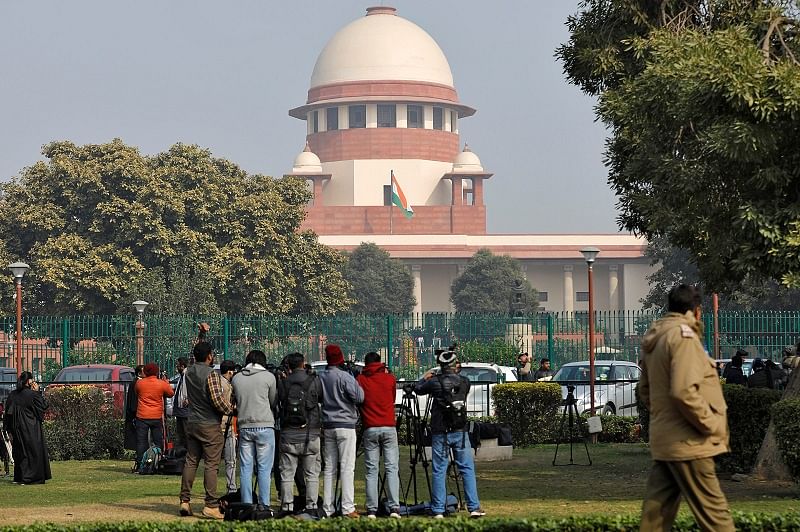
The Supreme Court on Friday favoured a Constitution bench to decide a legal question whether a life term convict can be released prematurely before completing minimum 14 years of jail term, in accordance with a policy framed by a state government.
A bench of Justices U U Lalit, Mohan M Shantanagoudar and Vineet Saran wanted the larger bench to determine if a policy can be framed under Article 161 (Power of Governor to pardon and grant remission) of the Constitution to grant release of convicts without putting facts of each case before him.
The apex court has framed legal issues including whether such policy would run counter to the mandate of Section 433A Criminal Procedure Code.
This provision restricted the power of remission on life term convicts unless they completed at least 14 years of jail.
In a series of cases namely Maru Ram vs Union of India and others (1981), the court has held that failure to put relevant materials before the Governor may lead to the quashing of remission orders, the bench pointed out.
"The question that arises is whether, in exercise of power under Article 161, a policy could be laid down setting out certain norms or postulates, on the satisfaction of which the benefit could thereafter be conferred upon or granted to the convicts by the executive without even placing the individual facts and material pertaining to the case of the convict, before the Governor," the bench said.
The matter arose out of a policy framed by the Haryana government. On the occasion of Independence Day i.e. August 15, 2019, the Governor, in the exercise of the powers granted special remission to prisoners, who have been sentenced for life. Such convicts were required to be 75 years or above in case of male and of 65 years or above in case of the female as on August 15, 2019.
A convict, Pyare Lal whose appeal was pending before the top court, was also released in terms of the policy. The court then sought to know the details of the policy.
